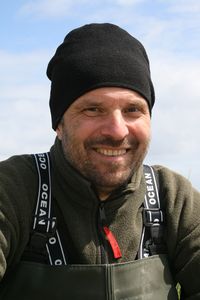Location: |
Geoecology

Research focus
Geoecology is a cross-sectional environmental science at the centre of which is the study of natural environmental systems, their complex interrelationships and interactions in the environment and how they are influenced by humans. An important focus of the scientific work is the investigation of coastal geo/biosystems and their reactions to medium and short-term sea level, environmental and climate changes.
Also research focussing on the science-society interface of geoecological systems is carried out. This research studies knowledge co-production and transdisciplinarity, social-ecological systems and networks and the implementation of ecosystem-based management approaches in marine, geoecological settings.
Research is conducted at different spatial and temporal scales. They cover the entire Quaternary period, i.e. 2.58 million years, as well as several centuries of vegetation succession and range spatially from the investigation of diatom populations of a few square centimetres to dike restoration measures of several hectares in size. Geological, sedimentological, palaeoecological, botanical and social science methods are used for the work.
Main topics:
- Reconstruction of sea level fluctuations
- Immigrant organisms in coastal ecosystems
- Diatom communities
- Geology and biostratigraphy of the coastal Holocene
- Implementation of ecosystem-based management
- Stakeholder and citizen participation in ecosystem-based management
- Social-ecological systems, network analysis and trade-offs
- Transdisciplinarity and knowledge co-production
- Participatory methods

![[Translate to English:]](/f/5/_processed_/3/2/csm_ICBM-Logo-transparent-_91fe1c6774.png)
